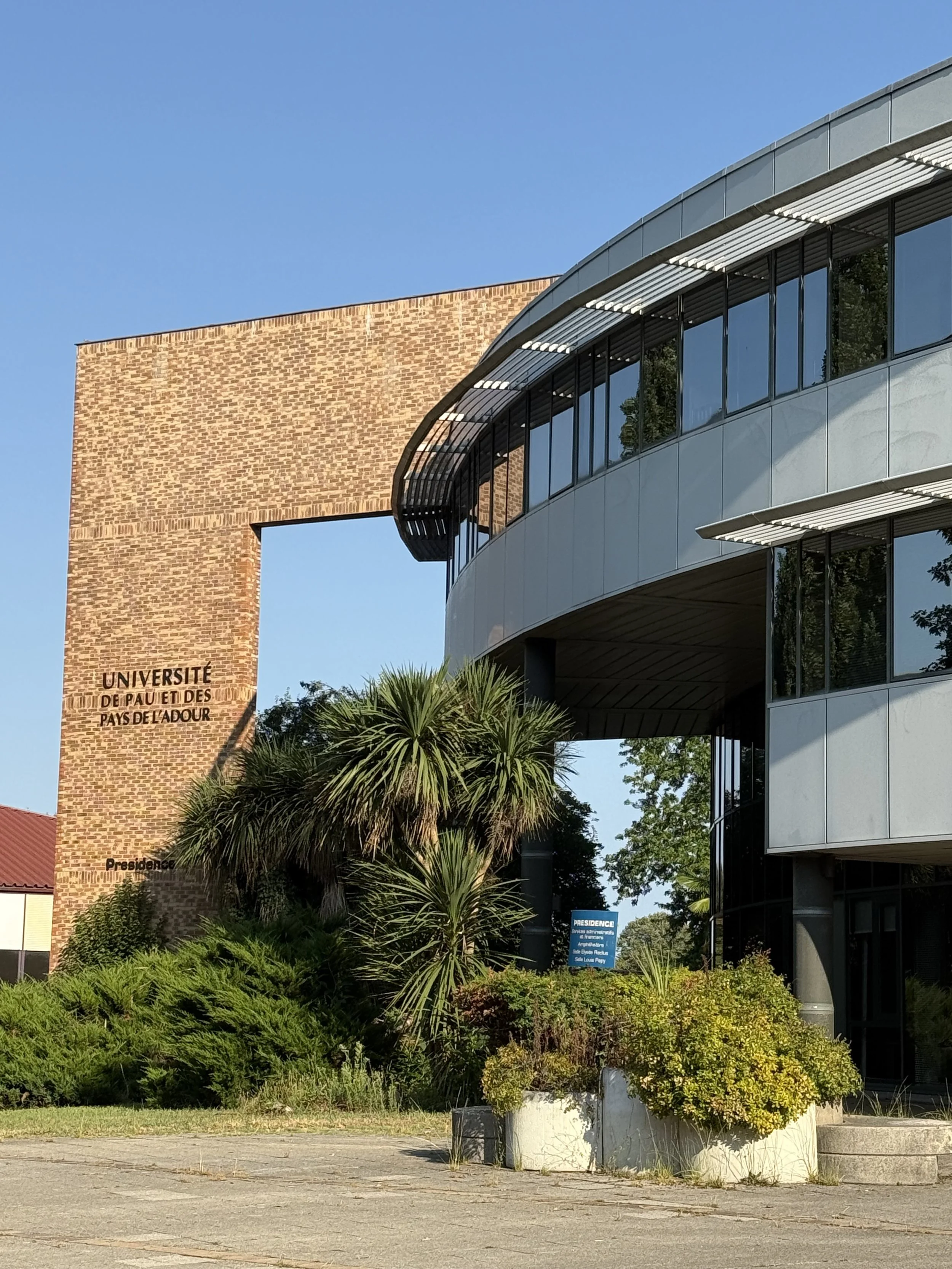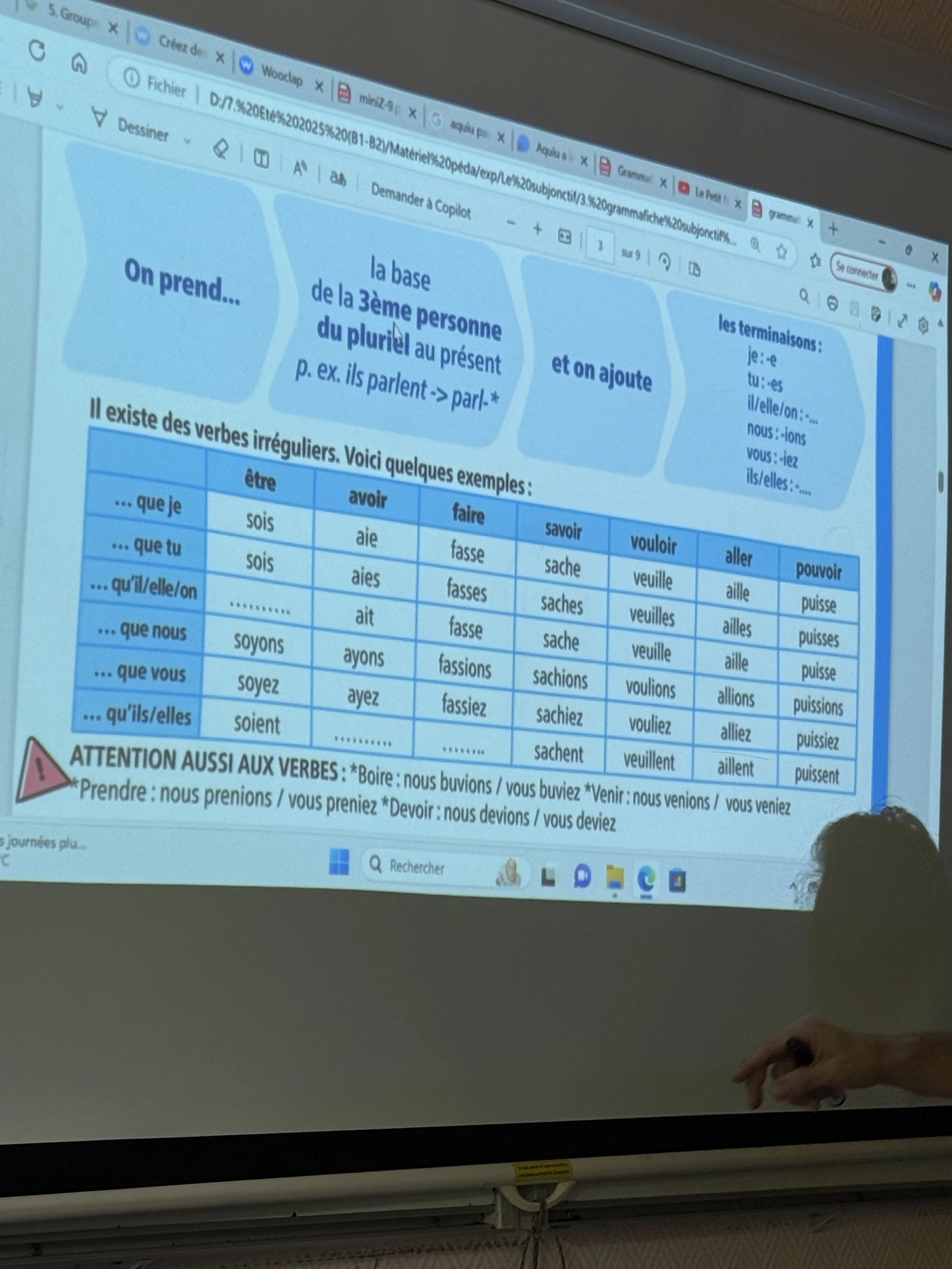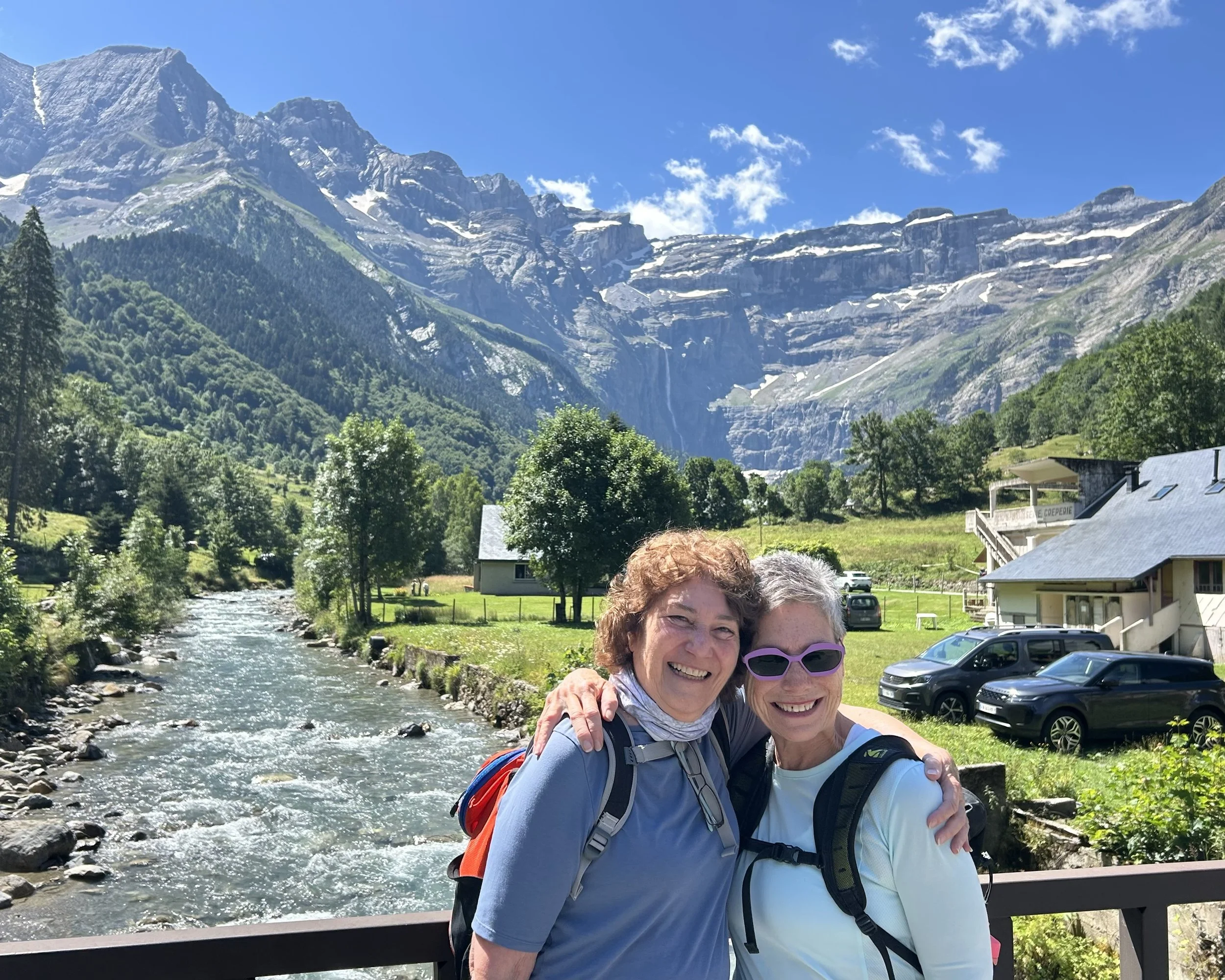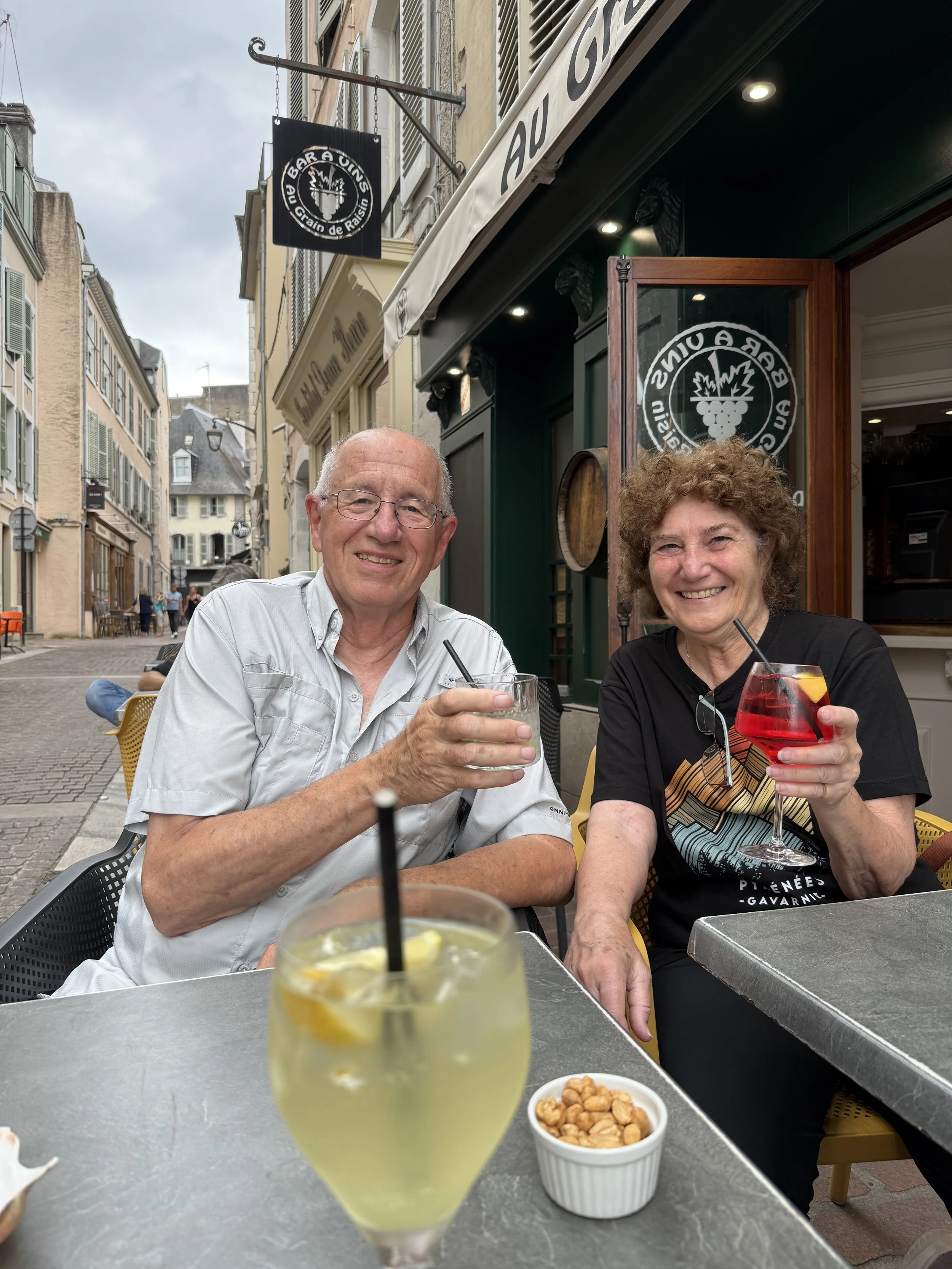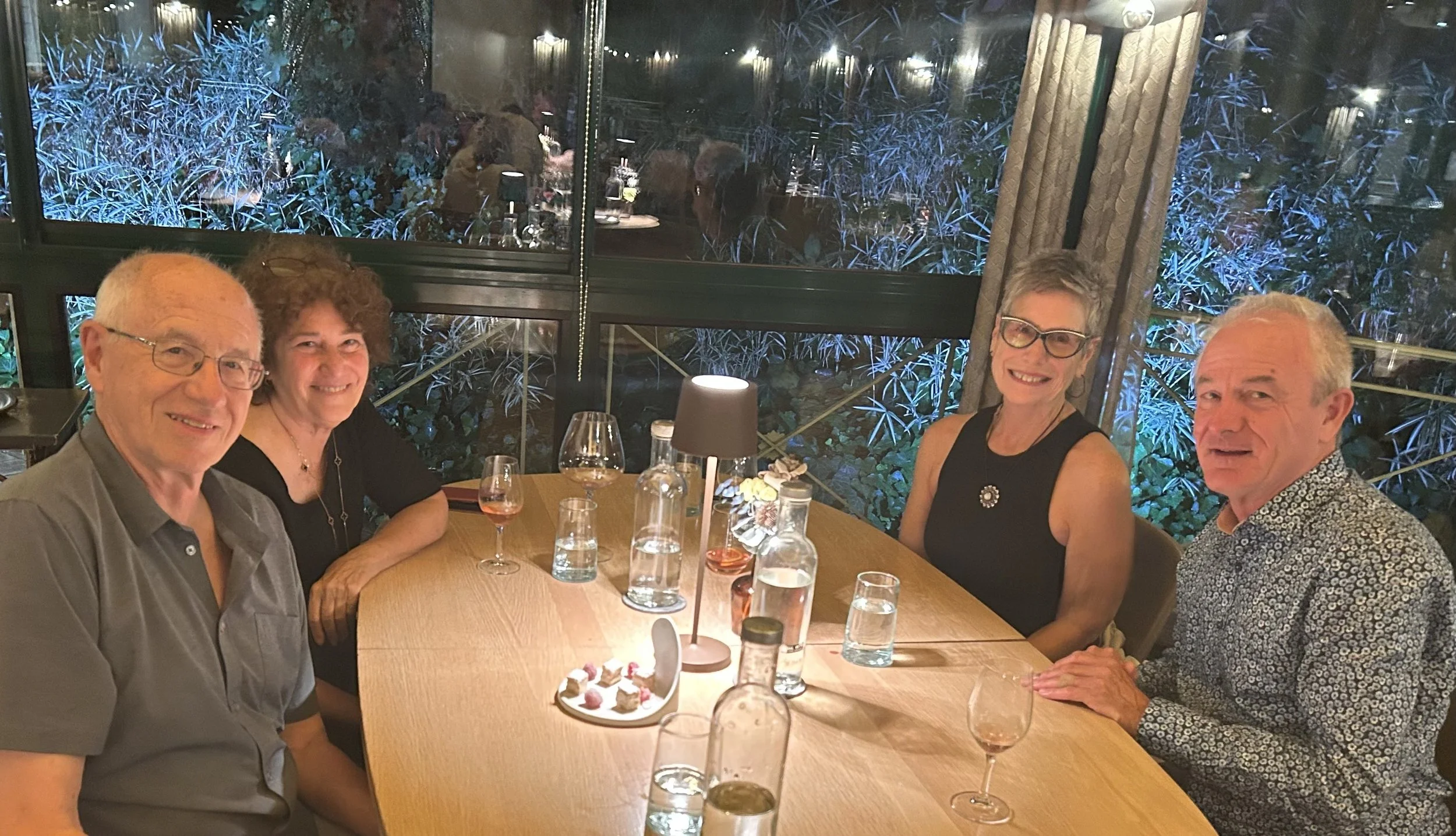Ignorance is Bliss
University of Pau south campus main entrance and office of the President for the institution’s three academic colleges (Sciences and Technology for Energy and the Environment, Social Sciences and the Humanities, Cross-border European and International Studies). There are ~ 9,000 students studying at the Bachelor and Master levels.
Licking my wounds…
For the second year in a row, JB and I spent the glorious month of July tucked away in classrooms at the University of Pau: force feeding the complexities of French grammar into our old brains. Because I’m still licking my wounds from that experience and since I will be publishing a special post September 11, today I’m offering a brief follow up to last month’s peek at my dance with the French language.
The nitty gritty…
The program in Pau is primarily designed for college students from around the world to improve their French language skills and to experience life in a small French city. However, the course is open to the public as well. Last year we were the only gray-haired participants; thankfully this year we were joined by a handful of other “mature” students from Australia, Ireland, China, Japan, and the US. Most of them live part or full-time in the Pau area.
The course complies with and tests for the various levels of the CEFRL (Common European Framework or Reference for Language). The CEFRL segregates language skills into six categories from lowest to highest: A1, A2, B1, B2, C1, C2. Passing the B2 level is important for residency in France. Fortunately, our “advanced” age exempts us from those requirements, but we remain committed to achieving that level to ease and enrich our expat life.
Placement in classes is determined by a series of assessments: an online test in advance, any previous score on a CEFRL exam, and finally a written exam and oral assessment by a professor on the first day of class. Last year, JB was placed in the beginner class and passed the A1 exam. I was placed in the intermediate A2 class and passed to the B1 level.
Wisdom or Folly…
This year, I felt confident about my success on the pre-testing and tried to stay relaxed during the oral assessment. At the end of this conversation, the professor cheerfully suggested that although it would be “challenging” I should join the “third group” class. I didn’t realize that this group combined B1 and B2 level students. This meant a student at my level, described as “able to perform simple tasks in everyday life,” would be studying with much more advanced learners, “able to communicate with a degree of fluency and spontaneity.” With ignorant bliss, I accepted the challenge.
Summertime and the living ain’t easy…
And “oh là, là, was it a challenge! The month flew by in a whirlwind of morning classes conducted entirely in French (including any explanations or clarifications) and several hours of independent study each afternoon. I faced new concepts daily, with no time to digest and assimilate the information. Sadly, the pressure of the pace caused me to abandon an optional theater course that I had enjoyed immensely the previous year.
Six of the most used verbs in French; all “irregular” conjugation. But what isn’t irregular in French! Picture my glazed eyes and the panic that inspired taking this photo to parse later...
In addition, all the necessities of maintaining our daily lives had to be squeezed in between classes and study time; the usual pleasures of our retired life were reigned in or put on hold. Our typical July preoccupation with the Tour de France was a major casualty. A brief break to watch the riders pass through Pau one afternoon was my only indulgence; a far cry from past years when we made mad dashes to other nearby stages and spent hours following the riders through gorgeous landscapes, ancient villages, and majestic mountains via train, car, or French TV coverage.
A friendly intervention…
Our only real break from combat with conjugation, syntax, phonetics, and vocabulary was on the July 14th holiday weekend. “Bastille Day” fell on a Monday, offering a long weekend to entertain guests from the States and to celebrate my birthday, which shares the same day as the national “fête” (holiday). As the weekend approached, I began to panic about not spending the entire weekend studying. A phone call with my dear, multi-lingual friend Jane (regular Boston host, frequent visitor to Pau, and invaluable volunteer editor of this blog) pulled me back from the ledge. She advised me to let go of old academic obsessions with grade performance and enjoy the opportunities the program offered.
Thanks to her, I gradually relaxed and had fun sharing my adopted city with friends from Boston. During that pause from frenetic language consumption, I accepted the fact that I wouldn’t be passing from level B1 to B2 in two weeks’ time. From that point on, the intensity of my effort remained the same, but my focus became less about achieving a particular score and more about building a base for a longer-term plan of success.
Boston friends Roberta & Peter: Hiking the Cirque de Gavarnie, cocktails at Au Grain de Raisin near the Chateau, and dinner at the exquisite Maynats restaurant.
The silver lining…
In the end, we both found the effort and the course worthwhile. JB passed from A1 to A2 and I remained in B1. It wasn’t a surprise. According to the Sorbonne Université, passing from B1 to B2 requires roughly 36 weeks (500-600 hours) of intensive study. My independent efforts with Duolingo and just four weeks of intensive study weren’t enough to make that leap. Despite the minor bruise to my pride, it is a bonus to have JB closing the gap between our levels of proficiency. We can now practice speaking French to each other and listen to French programs together.
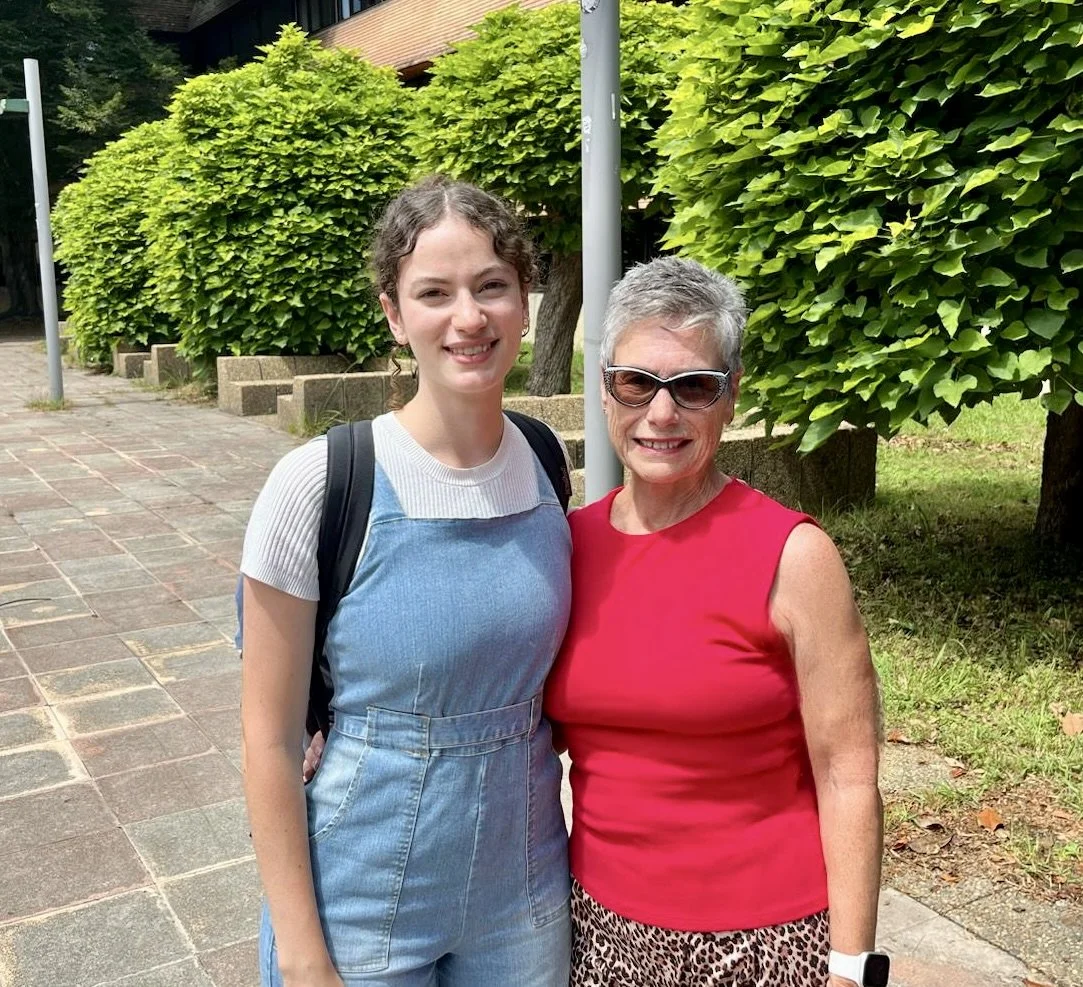
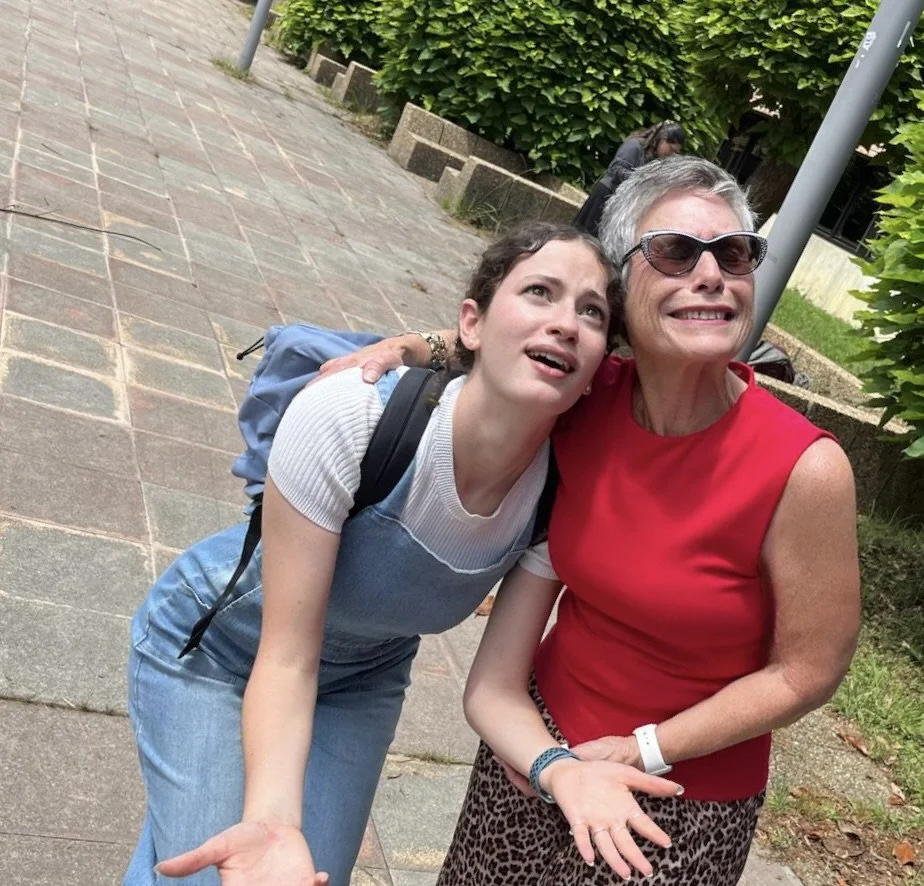
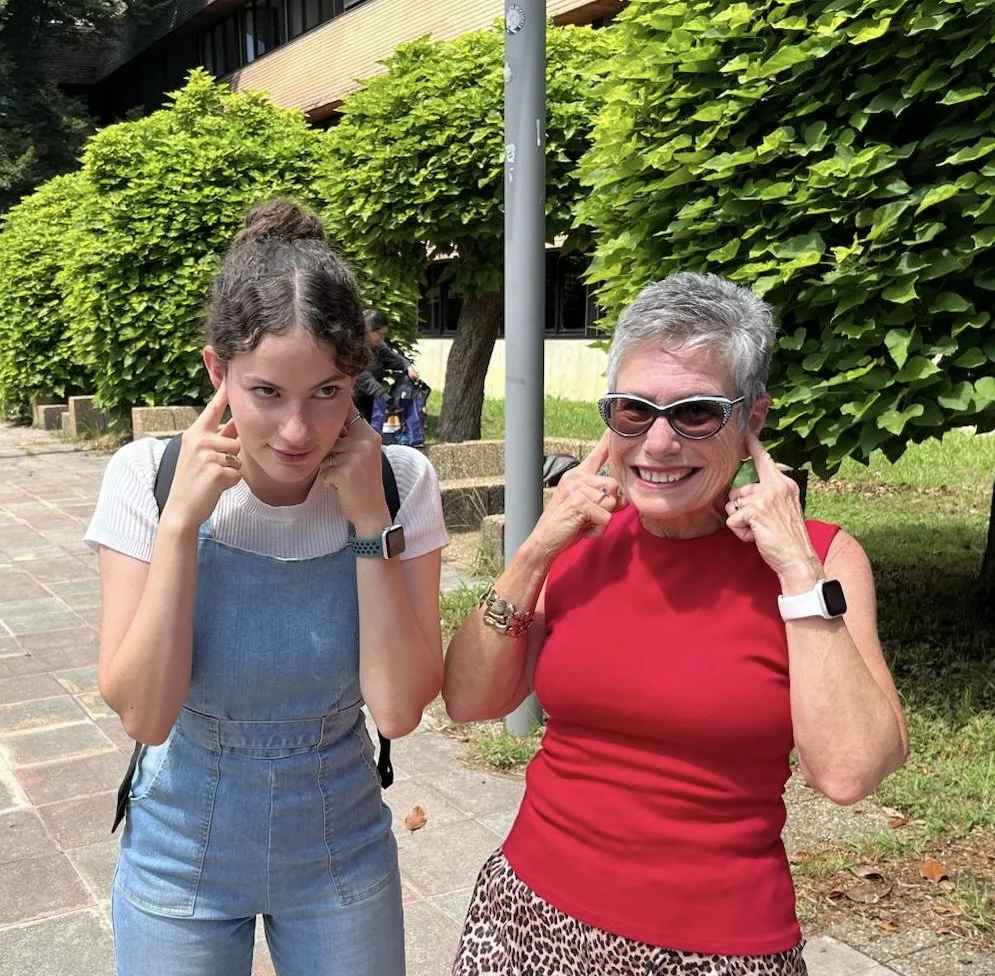
Last day of class farewell to Allie, a bright and motived American student with maturity well beyond her years. Her encouragement and humor kept me going and added much needed levity amidst the endless grammar exercises!
Back in the saddle…
This course also gave me a much clearer understanding of the task ahead. My professor, and cohort Allie, were very encouraging and offered numerous tools for building my listening and oral skills: online sources for listening to French music, podcasts, news, and arts programs that can be geared to various CEFRL levels. Semester long courses at the university would be ideal, but right now this isn’t an option as I still return to Boston regularly to spend time visiting my elderly mother.
My alternate plan is to begin an online B2 exam preparation program, to continue our current efforts spending time with French speaking friends -- including new expat friends from the course -- and to possibly participate in a short-term emersion program. Oddly enough, living here as retired expats isn’t as immersive as one might think. The lack of career or academic studies to demand constant thinking and communicating in the language dilutes the immersive effect experienced by study-abroad students living 24/7 with a French family for several weeks or months.
High Hopes…
So, by the time Bastille Day rolls around again and kicks off my seventies, I hope to have joined the ranks of those “communicating with a degree of fluency and spontaneity,” or at least have made substantial strides in that direction. Stay tuned…
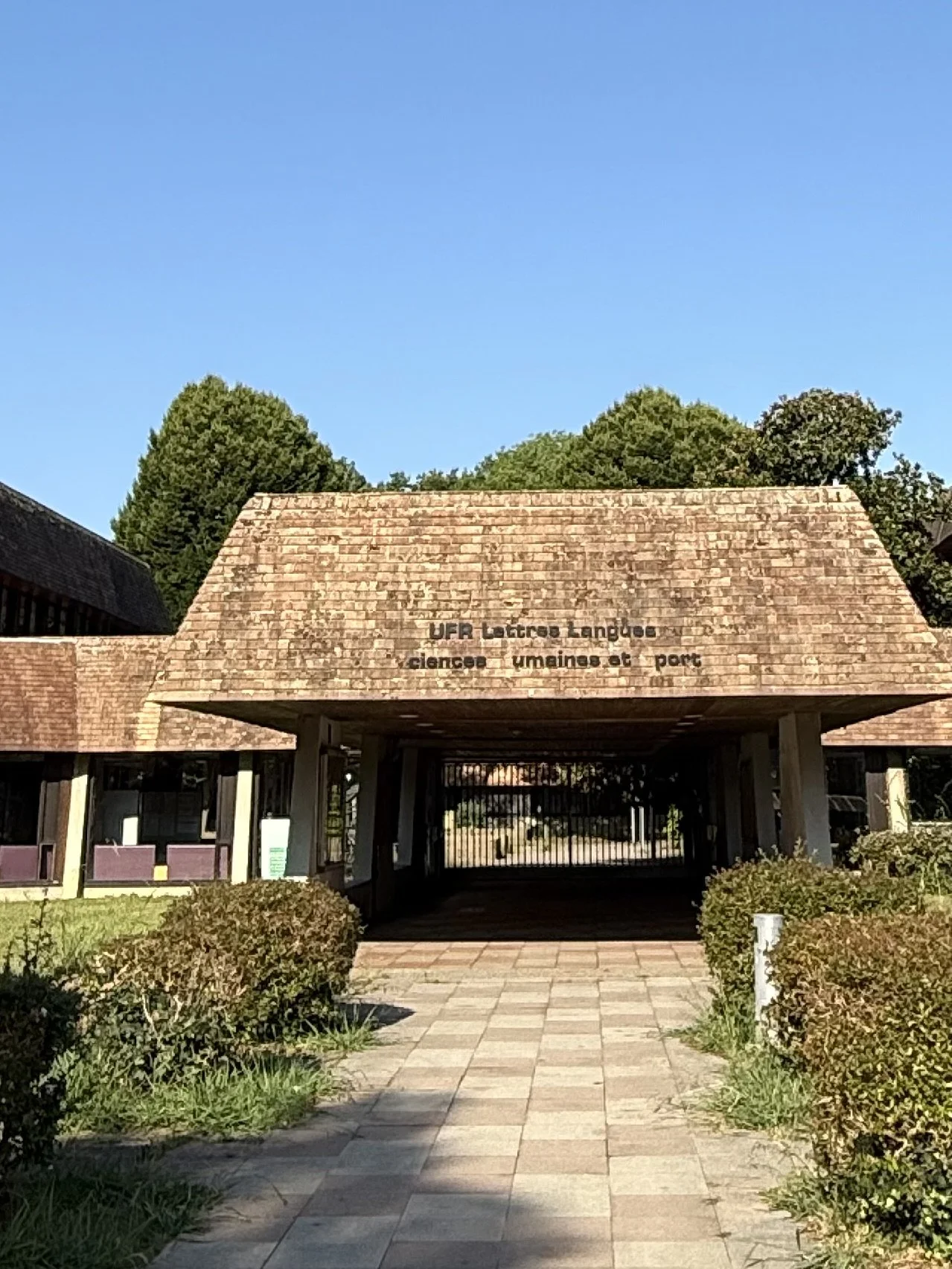

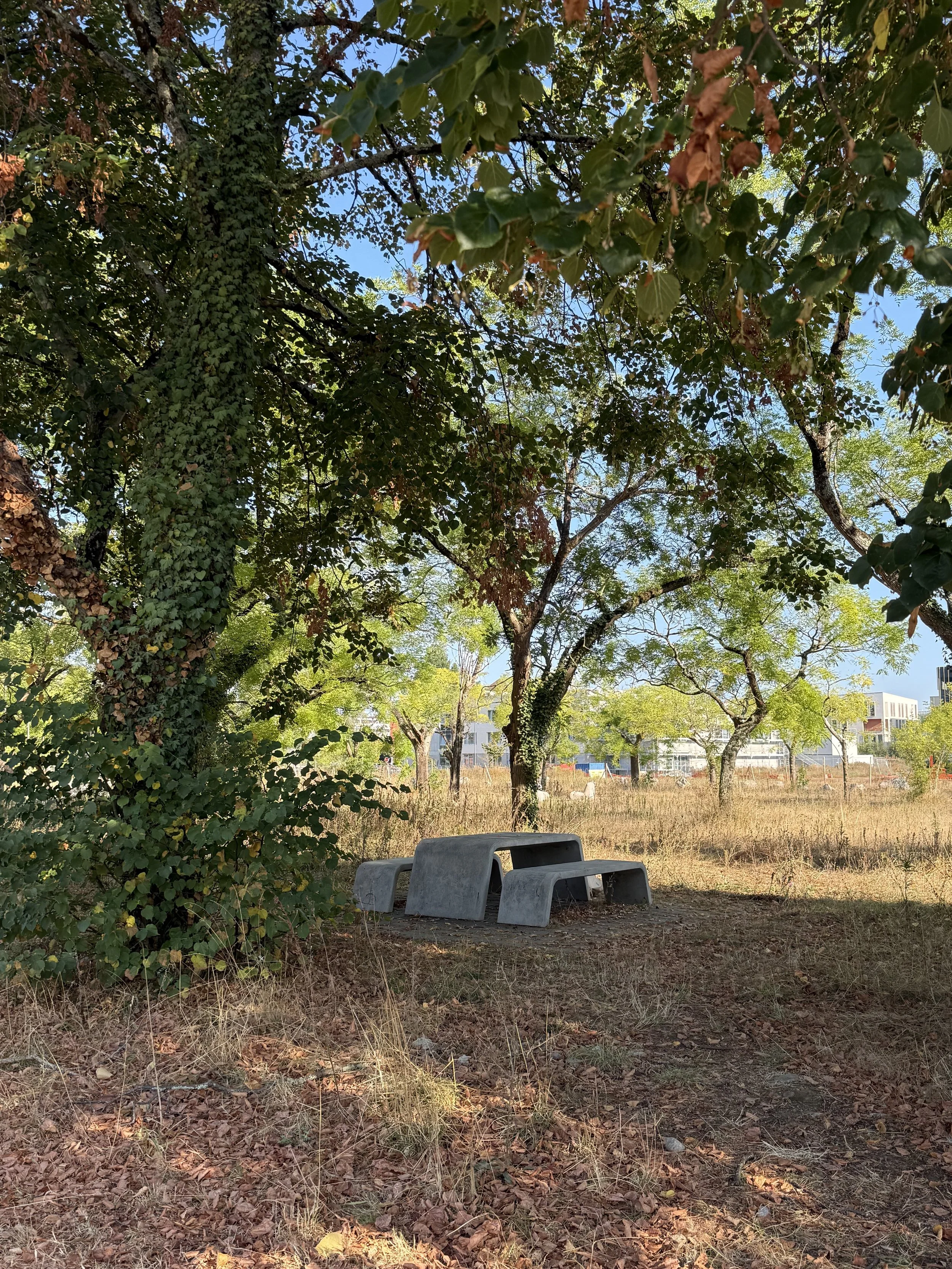
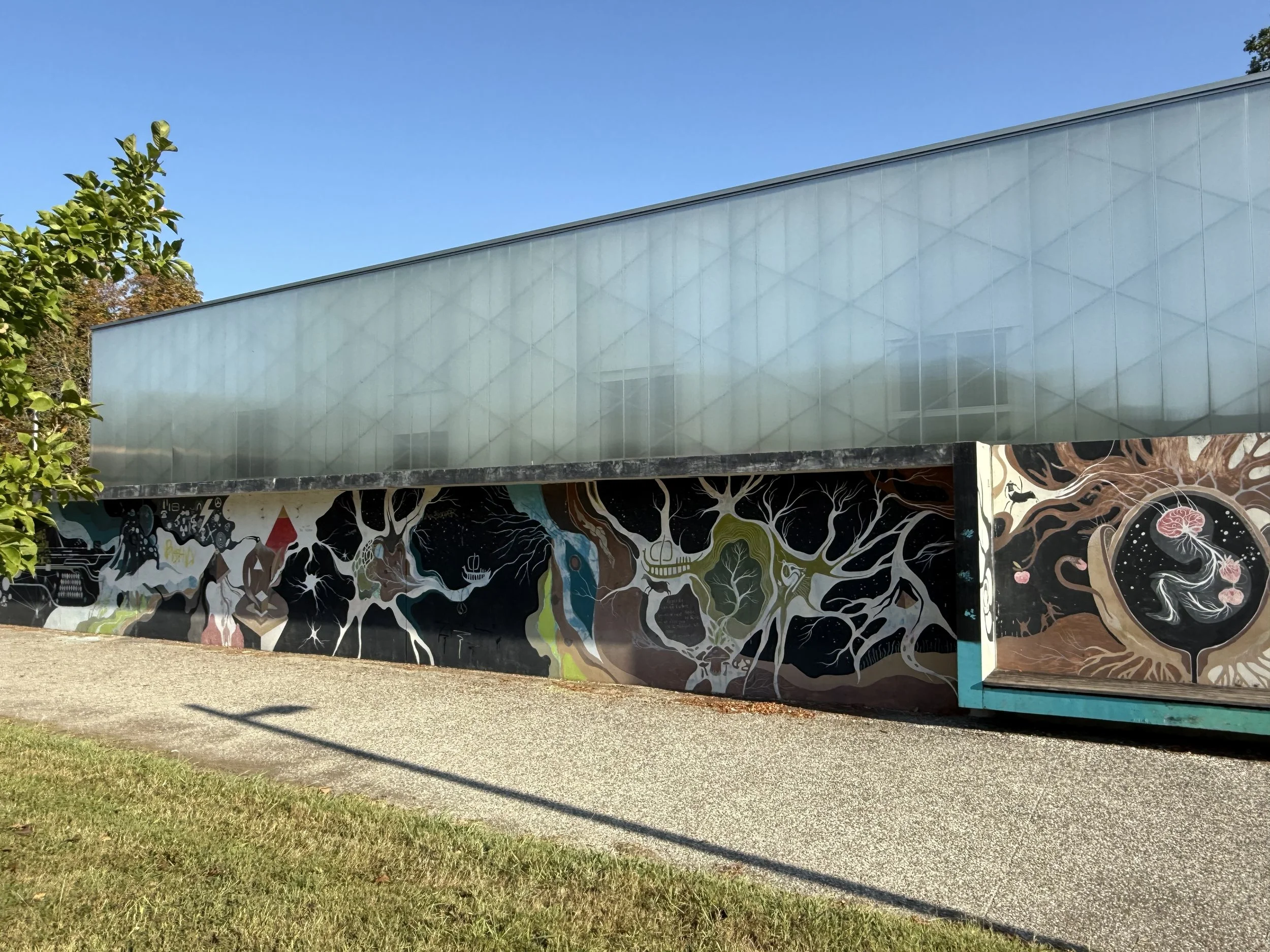
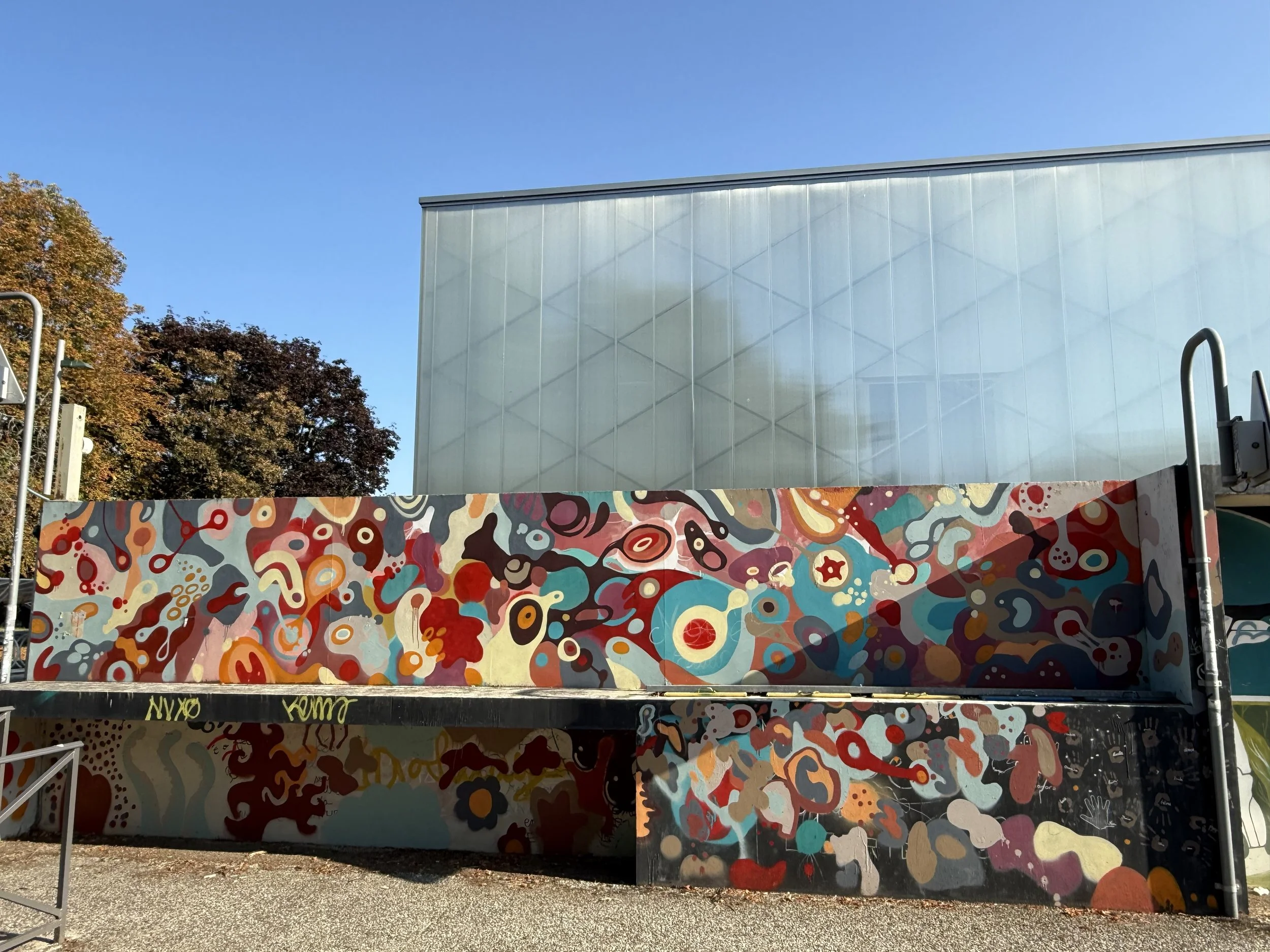
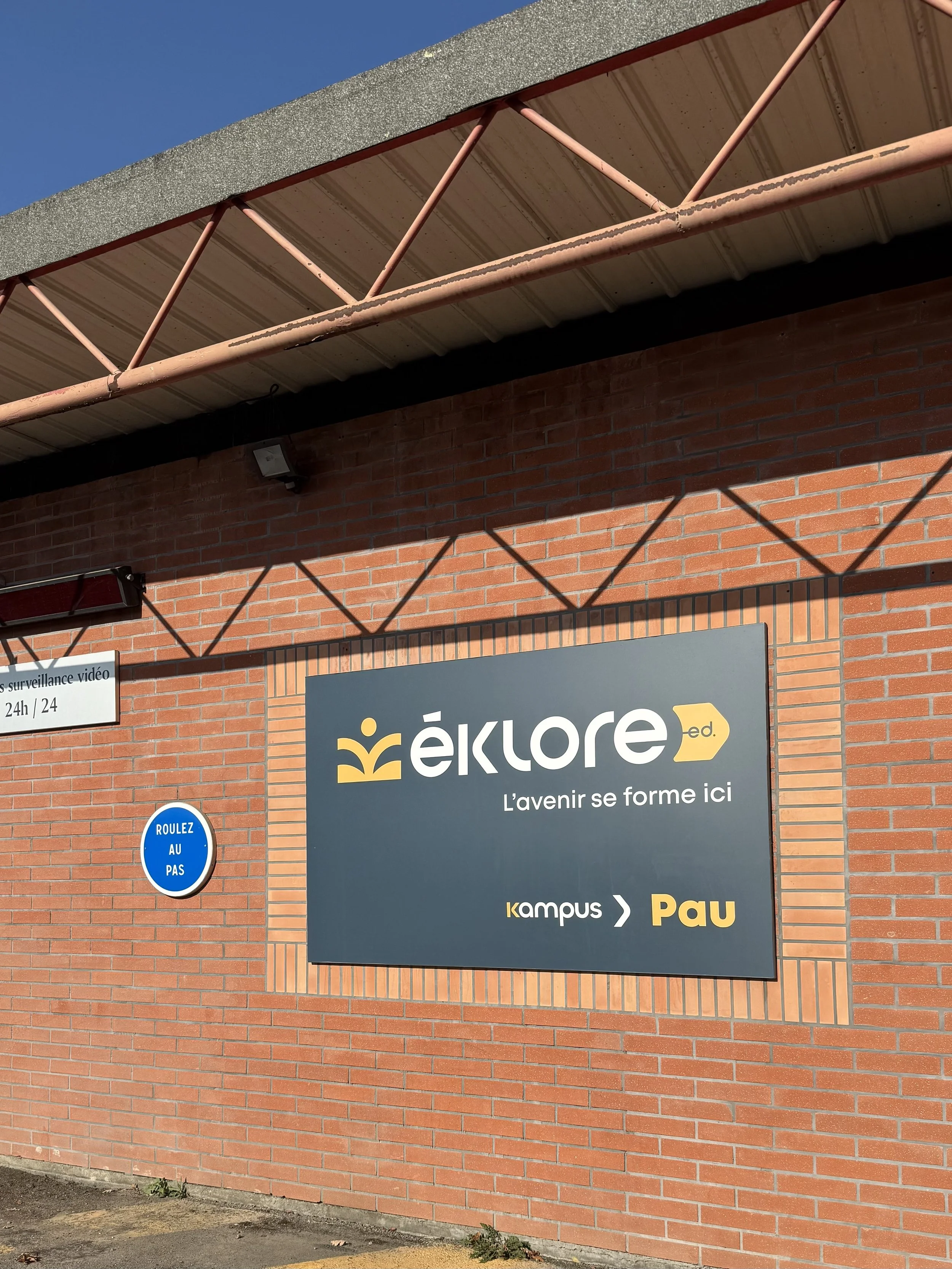
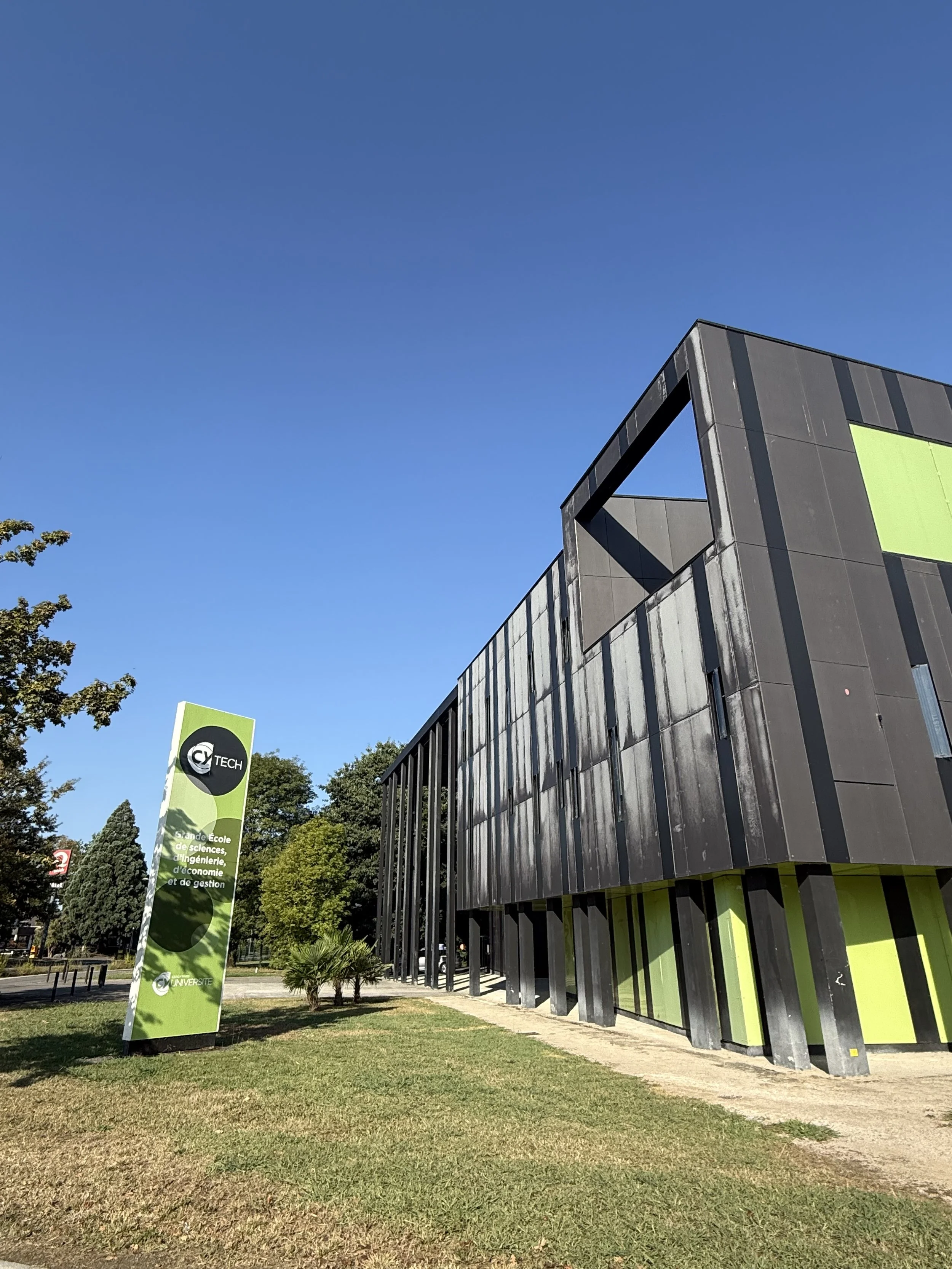
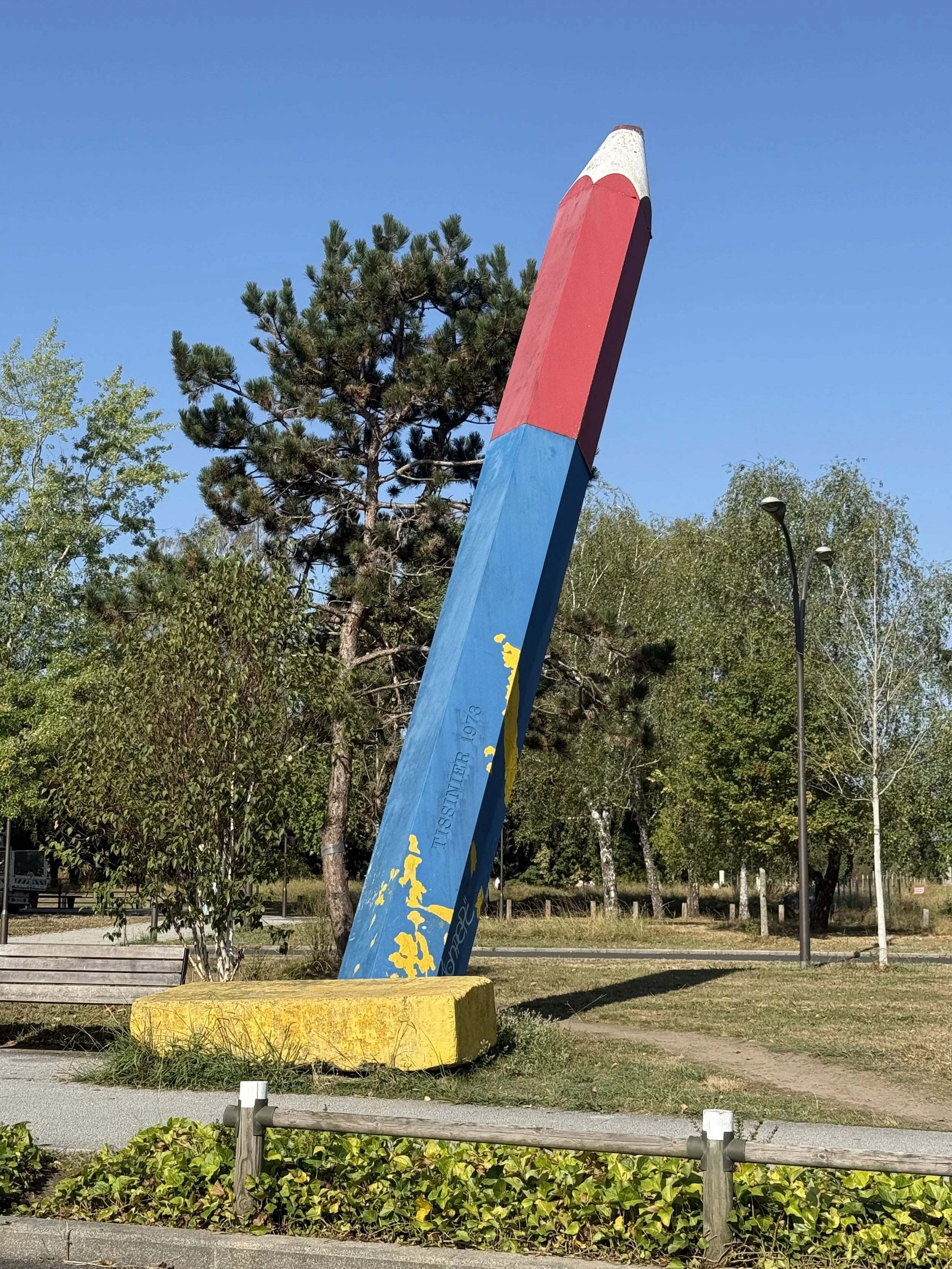
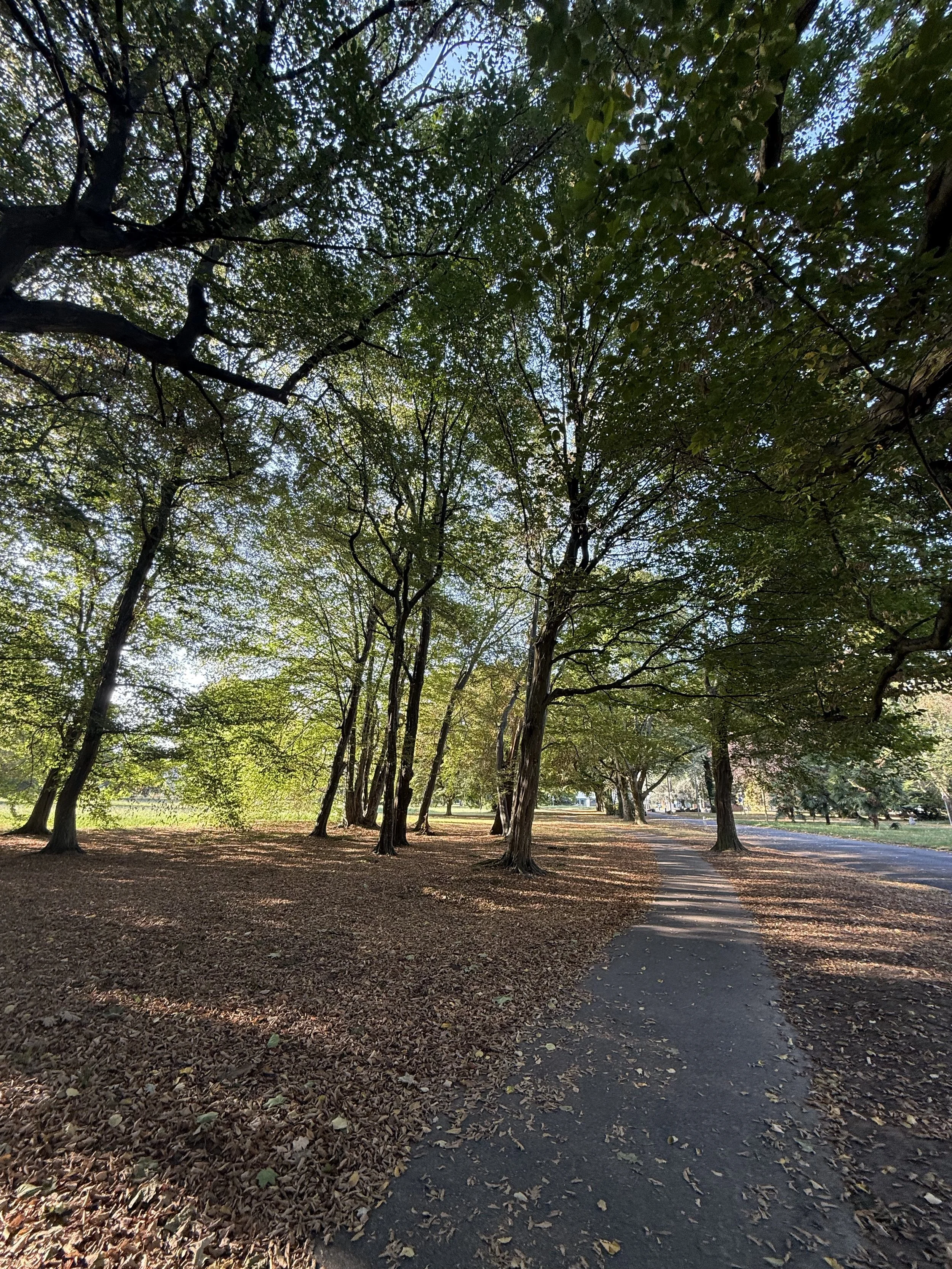
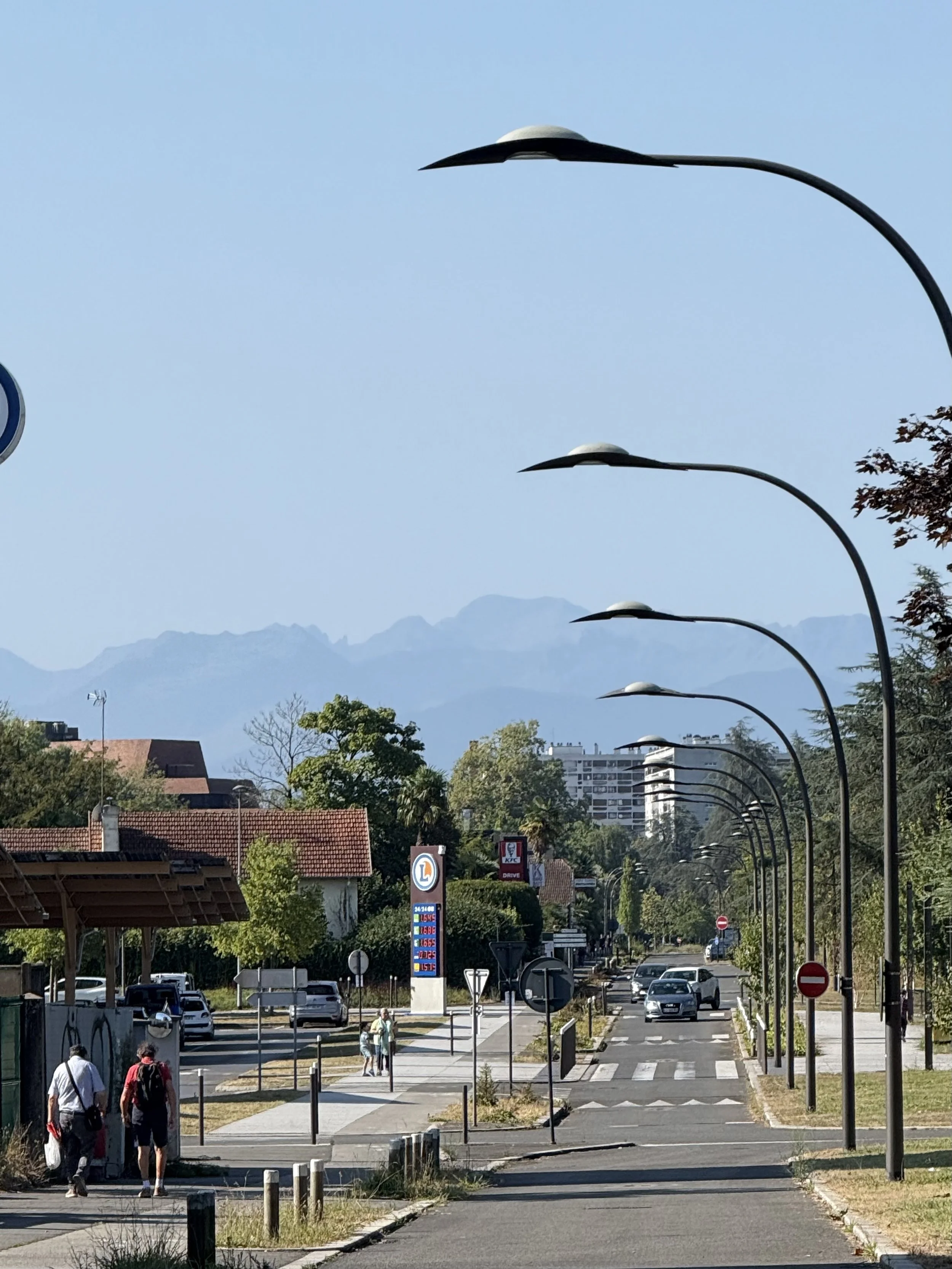
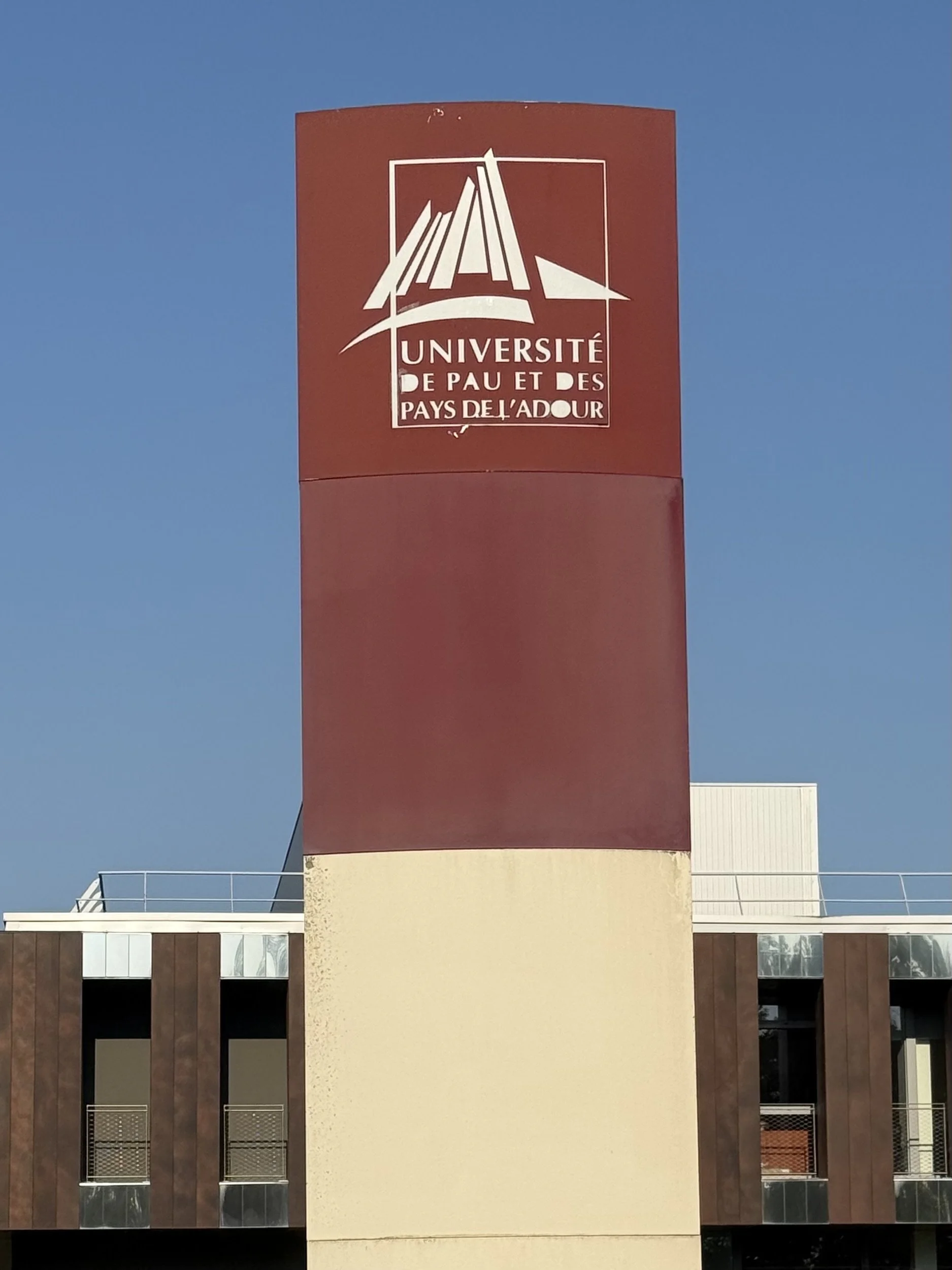
A few familiar campus spots, mostly around the school of languages. The University of Pau is set in a wooded park on the northern limit of the city and boasts mountain views from Allèes Condorcet on its eastern border.

